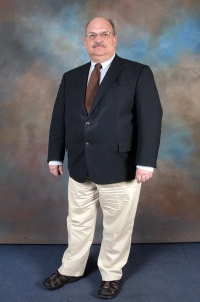.
.
.
.
Magnolia Blues
.
There can be bebop and billowing skirts,
…..hot pastrami and cold beer, but only if
………we’re good.
That’s the catch. We’re weighed down by doubt.
…..Can all this wonder be had for free? It’s
………time to take stock.
All the pretty horses can’t put humpty dumpty
…..together again. It’s partly a matter of will
………power, sure.
It’s mostly a matter of power, pure and simple.
…..And the will is half-hearted. There’s no
………zeal. There’s no roll.
BBQ sauce, but no mustard. There are eggs, but
…..Benedict died last June of a stroke. Whoever
………said we could have it all, lied.
The billowing skirts were not the first to go, but
…..the girls get tired of playing. They’ve
………been recruited by the U.S. army.
Now women carry guns. Our next loss is jazz.
…..Without the blues, there’s no rhythm. The
………country has lost its beat.
Everyone is out of step. The problem
…..is not the booze. It’s the money. We’re all
………too rich for our own good. We’re unhappy.
Louis Armstrong was elated. W.C. Handy, giddy.
…..Think back. You remember. Jazz was rollicking: horns
………toot-tooting, the pianist on his feet, the drums exploding.
We’re all miserable. Fattened up for slaughter. Now
…..we wait for the other shoe to drop, as the centipede
………crawls toward the exit.
We know it’s just a matter of time. It can’t go on like this forever.
…..We’ve become too refined, far too delicate,
………too fat for good music.
Anyway…no one has the oomph. It’s all petered out.
…..We’re out of gas. There’s an energy shortage,
………you know.
For the most part, pictures will be enough, for a while,
…..like those of farmers. Nobody wants to get his hands dirty,
………digging in flower beds, plowing, changing diapers.
No one wants to turn potatoes, feed the pigs or geld the stallions.
…..What is there to celebrate if there are no children?
………That’s the question.
If there’s no harvest, what’s the point of drinking? And
…..now they say there’s no purpose in planting flowers.
………The suburbs are obsolete, no pleasure in squirrels.
No need for dogs to bark. No need for evening walks. No
…..need for games of catch. Eliminate the lawns, they decree,
………which are nothing more than symbols of Farmer Brown.
There’ll be nothing to remember, not even the sound of crying babies.
…..Family life is finished. Dirty floors, mother’s milk, chicken pox
………are all a thing of the past.
Now the smell of grass must go. It’s no longer the Age of Aquarius;
…..it’s the age of exhaustion. We’re entering America’s very own
………Cultural Revolution. At the end of the day, they’ll be hell to pay.
It’s the age of recrimination. People stand around pointing fingers,
…..as the time French women were made to pay for bedding
………enemy soldiers. They were driven through the streets, naked.
It’s an age of exculpation. We all want to wash our hands of it.
…..The only music left is what we demand to see others face.
………Otherwise we want silence.
.
by David Lohrey
.
.
___
.
.

David Lohrey grew up in Memphis and graduated from University of California, Berkeley. David’s plays have been produced in Switzerland, Croatia, and Canada. His poetry can be found in literary journals in the US, .Australia,. the UK, .India, .Canada, and Malawi. His fiction can be read online at The Broke Bohemian, Terror House, Literally Stories, and others. ..David’s .The Other Is Oneself,. a study of 20th century .Postcolonial novelists, was published in 2017 in Germany. . .Machiavelli’s Backyard, his. first .collection of poetry, was published by Sudden Denouement Publishers. .His newest collection .Who Started the Fires? .is soon to be released. .He lives in Tokyo.
.
.
.





























David – Great beginning: “There can be bebop and billowing skirts”. I wish I’d thought of that! And then the blues.